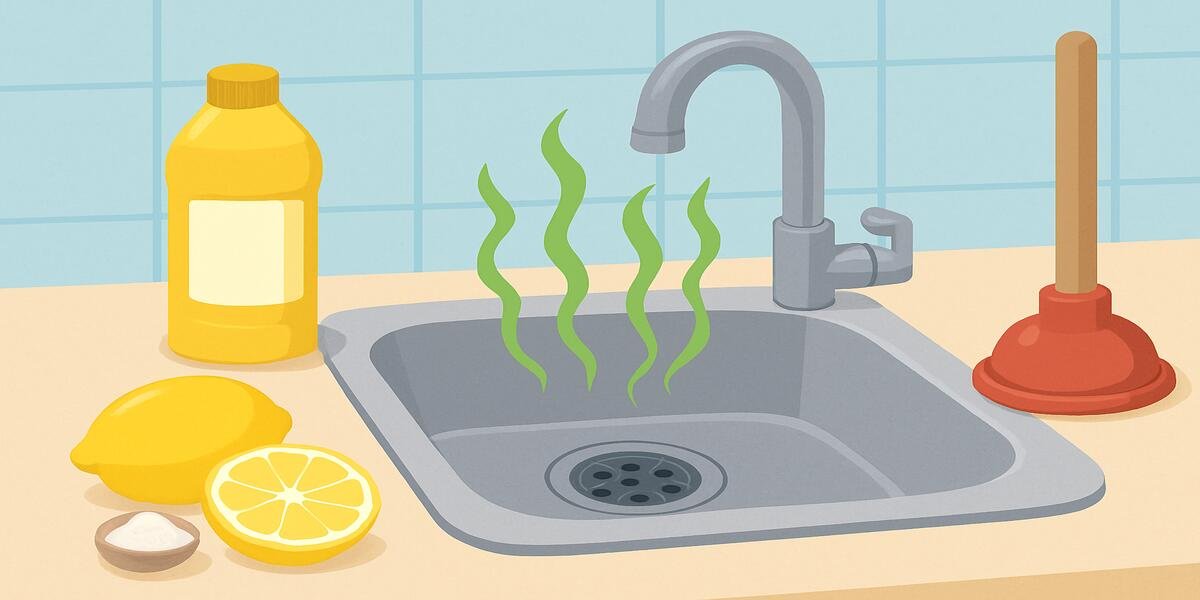Remove Bad Odours from Drains and Pipes Easily
Nothing is as bad as foul smells, which are emitted by your kitchen sink, bathroom drains, or laundry pipes. The house seems unacceptable to the vendors of discomfort. Such odors could be signs of other undetected hygiene problems: Food particles may clog the pipes and drains, while grease, soap scum, hair, and miscellaneous types of dirt may provide an ideal medium for bacterial multiplication and, thereby, odors after some time. A positive thing to know is that, through some brilliant cleaning hacks, one can easily clean their drains without harsh chemicals. Some of these proven methods are also applied by bond cleaning Gold Coast professional cleaners, such as those providing end of lease cleaners, to achieve good results.
Why Do Drains Smell?
It is necessary to learn about the cause of odours before knowing how to eliminate them. Bad smells tend to occur because of:
- Blocked debris: Food waste, grease, and hair usually become trapped inside pipes.
- Bacterial growth: Bacteria and mould thrive in the wet conditions found in the inside of the drains.
- Dry traps: As the water trap (P-trap) has dried, the sewer gases may get into your home.
- Poor maintenance: Cleaning is not performed often, leading to the accumulation of strong, unpleasant odours.
Good methods of eliminating unpleasant odours in pipes and waste drains.
1. Use Baking Soda and Vinegar
The most convenient and least damaging method is to use baking soda and vinegar. Liquid or baking soda, 1/2 cup to the drain, and 1 cup of vinegar. Its fizzing effect is useful in dissolving grease, food residues, and bacteria. You can put more hot water after 15 minutes to give it a fresher smell.
2. Flush with Boiling Water
Most pipes are clogged by grease and soap scum. To avoid odours, it is advisable to pour the boiling water down the drain once or twice a week to help the deposits dissolve. In the case of difficult smells, use vinegar instead of boiling water to make it more effective.
3. Clean the P-Trap
Another usual offender of foul smell is the P-trap, which is found beneath sinks. In case the odours are not removed, put a bucket beneath the pipe, unscrew the tap, and remove any debris that might have been trapped. It should be re-glued very carefully, and hot water should be used to clear the residual particles.
4. Freshness Lemon and Salt.
In the case of kitchen sinks, prepare a lemon cut into small pieces and combine it with coarse salt. Pour the mixture into the drain and flush with warm water. This not only eliminates the odours but also leaves a fresh smell of citrus.
5. Enzyme-Based Cleaners
Organic waste is degraded without using harsh chemicals by using eco-friendly enzyme-based drain cleaners. They are also most effective in long-term odour management, and they are also safe on septic systems. These products have become the favorite of many professionals for deep bond cleaning when it comes to using these products in sustainable cleaning.
Preventing Drain Odours
- Do not pour down the sink.
- Fit drains with strainers to trap food scraps and hair.
- Turn on the hot water on a routine basis to clear pipes.
- Arrange regular professional cleaning in order to keep the place hygienic.
Conclusion
The odours that come out of pipes and drains are sufficient to make any home uncomfortable, but through simple cleaning techniques that are environmentally friendly, they can be easily eradicated. Starting with natural solutions, such as vinegar and baking soda, to the professional cleaning service, there are many ways in which you can be sure to maintain the drains clean and hygienic. To address the problem long-term, we would recommend that you hire professional cleaners for the end of lease cleaning to make sure that not a single place in your house has any odours or spots.
